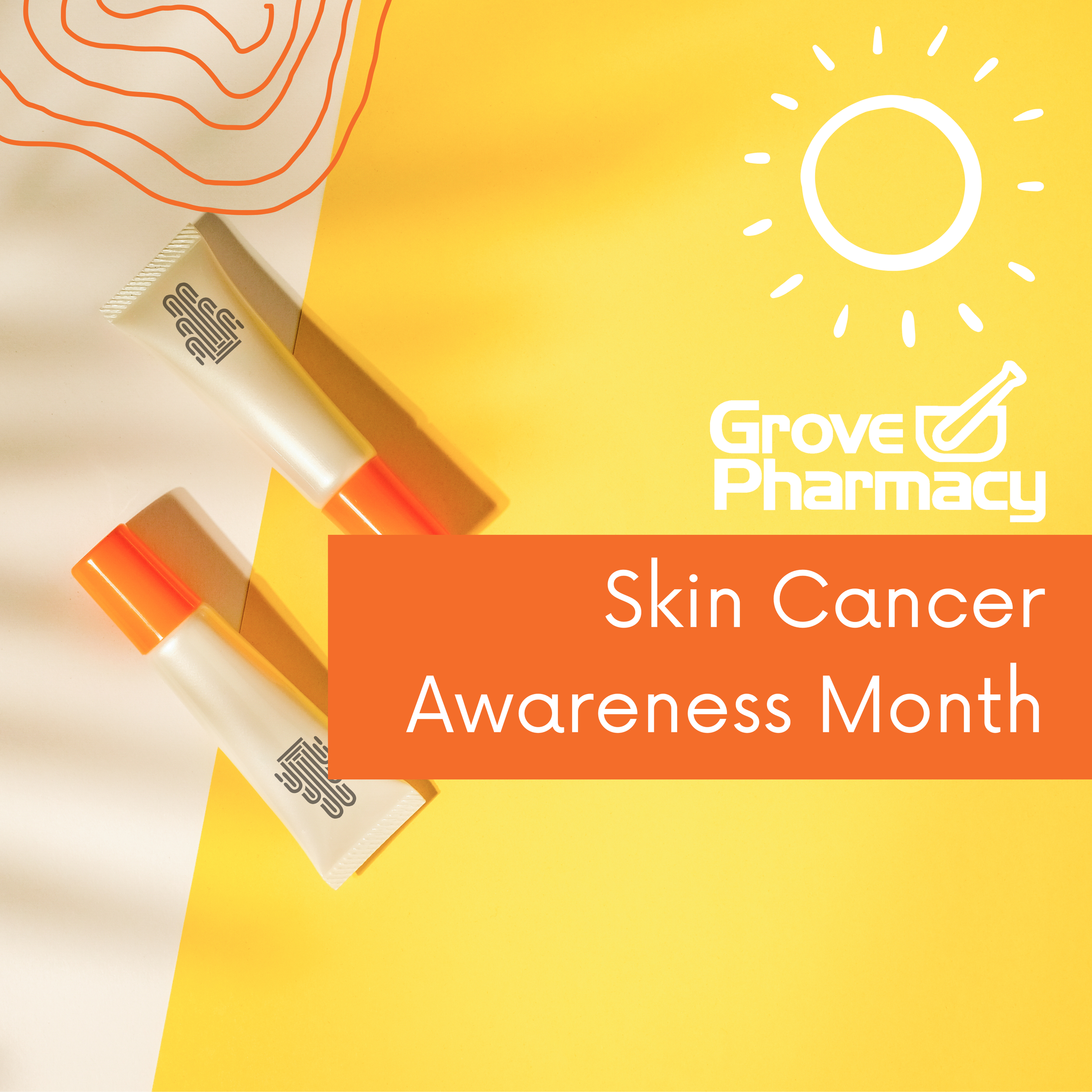May - Skin Cancer Awareness Month
Facts about skin cancer:
Skin cancer is the most common type of cancer in the U.S. and worldwide
1 in 5 Americans will develop skin cancer by age 70
Every hour, more than 2 people die of skin cancer
Your risk for melanoma doubles if you’ve had more than 5 sunburns
Regular, daily use of SPF 15 or higher sunscreen reduces your risk of melanoma by 50%
Ways to protect your skin*
Seek shade during peak UV hours approximately 10am - 4pm.
Avoid tanning, especially UV tanning beds. If you are looking to have glowing tanned skin, consider going to get a spray tan.
Cover up with clothing, including a broad-brimmed hat and UV-blocking sunglasses.
Use a broad-spectrum UVA/UVB sunscreen with an SPF of 15 or higher every day. If you are going to be outside for extended periods use a water-resistant, broad-spectrum sunscreen with an SPF of 30 or higher.
Apply 1 ounce of sunscreen to your entire body 30 minutes prior to going outside. Reapply every 2 hours or after swimming or sweating.
Self-Exams Save Lives
When caught and treated early, skin cancers are highly treatable. In the early stages of skin cancer development, you are the one with the best chance to see changes.
Checking your skin head-to-toe once a month is a good way to see if there are any changes in your skin. Here is what you should be looking for:
A growth that increases in size and appears pearly, transparent, tan, brown, black, or multicolored.
A mole, birthmark, or brown spot that increases in size, thickness, changes color or texture, or is bigger than a pencil eraser.
A spot or sore that continues to itches, hurt, crust, scab, or bleed.
An open sore that does not heal within 3 weeks.
How to perform a self examination for skin cancer
*Speak with your medical professional about what sunscreen and sun protection is right for you and your family. Information provided by the Skin Cancer Foundation. This information is for educational purposes only. It is not meant to diagnose or treat any condition. Always consult a medical professional if you have any questions regarding your or your family's health.


